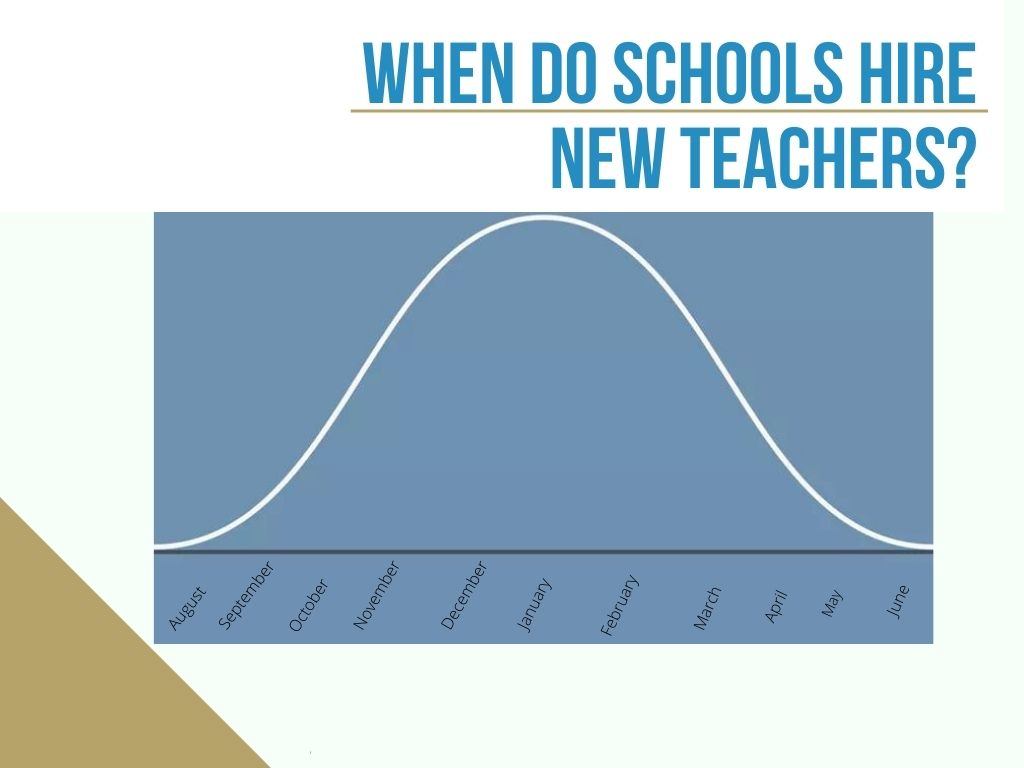Are you considering a teaching position abroad but are unsure of the timeline for hiring?
Unlike domestic schools, international schools start their recruitment process much earlier due to the lengthier process of finding and onboarding teachers. Most international school teachers start their school year in August/September, making it easy for those located in the northern hemisphere. However, educators in Australia and New Zealand need to plan for a mid-year departure.
Navigating the hiring timeline for securing a job at an international school can be tricky to navigate. Some schools ask for “intent to return” from their teachers as early as October – just a couple of months into the current school year. While most schools don’t require notice until December, January, or later, teachers at European schools are often required to advise their employers late in the year. This timeline creates a domino effect in international schools worldwide as teachers signify their plans to move, and schools start listing their vacancies accordingly.
For those aiming to join an international school, understanding the hiring timeline for jobs abroad is crucial to maximize the likelihood of obtaining a new role.
When do international schools start to recruit?
The hiring timeline for jobs abroad is a long one and schools tend to start the recruitment process as soon as possible.
Schools invest significant effort in identifying staff intending to depart the following year and then scouring various sources and networks to identify potential educators. This involves conducting interviews and preparing the necessary documentation to legally establish the teachers in their new host country. (Acquiring a work visa, a requisite for most foreign work arrangements, involves substantial paperwork that can span several months. It’s worth noting that numerous international schools boast great HR departments capable of navigating the complexities of securing work visas in their respective countries and offering guidance to new recruits).
Do any jobs come up in January?
Such opportunities are quite rare.
There are a small number of Australian international schools around the world that start in January. There are also a few positions that come up unexpectedly, due to unforeseen circumstances like illness, maternity leave, or abrupt relocations of non-teaching partners which might lead to unexpected job openings.
Single teachers have a much higher chance of getting a job in January, as they are easier to place. However, if a position does come up at that time of year, it would need to be in your area of teaching and you would also have to want a position in that country, and be the best applicant! This does narrow your chances of finding a job abroad to start in January significantly.

Is hiring happening earlier?
Sometimes it feels like recruiting has become a year-long process starting in August and continuing up until June. Placements continue to peak by March and then still continue over June and July (or ‘summer’).
While the general timing of most hires remains consistent with previous years, the trend towards earlier intent-to-return notifications from existing staff members has been observed across numerous schools.
The school year
During the initial stages of the recruitment season, school heads and recruiters are preoccupied with ongoing school matters.
They may choose to wait until mid-year to connect with teachers through the database or at recruiting fairs. Unfortunately, this means that some schools might not respond to applicant inquiries during the busy first half of the year. However, a lack of response doesn’t necessarily indicate disinterest; many schools maintain a roster of prospective candidates who reach out and subsequently contact them if a suitable opening arises.

Recruiters also receive thousands of unsolicited e-mail messages expressing interest in jobs each week. A recruiter says,”…When I was a Head of School in Asia, I hired someone just to traffic the email for me. I wanted to make sure to reply to everybody who wrote to us”. However, this is not every principal’s style. Sometimes they’re thinking, “…I’m getting hundreds of these messages a week, and I’m planning on recruiting at XX fair. Since I’m attending the fair anyway, I’ll just wait and talk to people in person.”
In March and April, schools start to be much more responsive to applications for their vacancies.
Sending inquiries about late openings in May and June enhances the likelihood of securing a position.
I saw a job and then it disappeared!
Some recruiters start their recruiting before the job fair season and lock in their top choices beforehand. This is one reason why jobs suddenly disappear.
One of the key messages for candidates looking to teach internationally is to have your CV, professional recommendations, current passport, copies of qualifications, etc. ready. Make sure that you’ve spent time researching schools and countries. Start checking schools with vacancies in your teaching area and looking at the countries that are of interest to you.
Additionally, many schools now run their student admissions process virtually, so take advantage of their online videos (aimed at prospective families) and see what the school promotes and what it values.
Understanding the hiring timeline for international schools is crucial for anyone considering a teaching job abroad. With the recruitment process starting earlier than domestic schools and the domino effect of teachers moving around the world, it’s essential to stay on top of the process to increase your chances of securing a job. Keep in mind that the timeline can vary from school to school, so it’s always best to start researching and applying early. By doing so, you’ll be well on your way to embarking on an exciting career teaching overseas.

